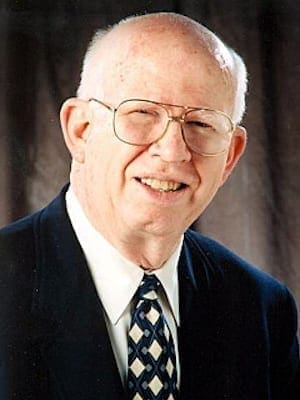I am a product of small-town public schools. As the battles rage over what is wrong with our schools and what makes for a good teacher, I think much can be learned from studying my hometown.
Woodruff, S.C., is a small, cotton mill town in the Piedmont region. In my youth, the great majority of people worked in one of the two textile mills and lived in company-owned houses. Many of these workers were refugees from small dirt farms.
Many had never graduated high school; however, they shared one unifying goal. They were determined that their children would live better lives and knew that education was the only solution.
They supported the schools. They turned out for school events although they had worked long hours in the mills, on the surrounding farms or both. They knew the teachers personally. The school was a source of pride.
There is another important ingredient. The church was involved in lifting the level of its children.
My church, Northside Baptist, worked to push its young people forward. Most of all, the congregation encouraged us.
The congregation also supported its pastors in getting more education in summer programs at the seminaries. It valued education.
We had interim pastors from the religion department at Furman University. We held joint services with the Methodist church down the street. If it had a prominent speaker in town, we went to worship with them.
Once when I spoke at our church as a teenager, that Methodist pastor invited me to speak there.
These people were poor in material goods, but they were rich in what matters. They were invested in the lives of their children.
On report card day, as I walked by the parsonage, my pastor, the Rev. Roy Gowan, wanted to see my report card. He was an encourager. I am sure he repeated this over and over again as other children passed by his house.
The old Baptist Training Union gave many of us a great start. We had to read or say our assigned parts. This was the beginning of my public speaking career. Christmas pageants and youth nights at Christmas followed. The adults showed up for these programs.
My high school speech teacher was also the superintendent of schools. “Teaching this class keeps me close to the students,” he said. “I know what they are thinking.”
He also taught a large men’s Bible class at First Baptist Church and invited me to be a guest teacher. These men were very supportive even though they were from a higher socioeconomic status.
I know that times have changed. The church cannot be as involved with the schools as it once was; however, this reality provides a great copout. There is nothing that says that churches cannot provide mentoring programs.
Churches can still provide training programs for their young people. They can provide opportunities for them to practice their skills. Rather than suppress discussion of controversial topics, the church can arrange civil discussions.
The church can provide scholarships to students and teachers. Rather than constantly berating teachers, churches can provide programs to recognize and reward outstanding teachers.
In the ongoing and worsening struggle over bullying, the church should be leading the crusade to curb it. Where are the programs on Christian behavior? Where are the programs on Christians’ responsibilities as citizens?
Where are the counseling programs for troubled youth? Where are the speaking contests, music recitals and essay contests? Where are the Christian parenting courses?
These are tough times economically, but in many churches or in the community there are well-trained volunteers who could and would conduct these programs and many others.
If nothing more, the church could get out of the criticism business and get into the supporting business. Negative sermons are easy to preach and require no preparation.
Ministers can lead the way by demonstrating the power of thorough preparation. Not by littering their sermons with endless quotations, but by demonstrating their mastery of the subject.
Many churches are simply asking the wrong question: What is wrong with our schools, our youth and our teachers?
The right question to address is this: What can we do to improve the lives of our young people?
Mitch Carnell is a consultant specializing in interpersonal and organizational communication. He is the author of “Random Acts of Kindness.” He and his wife, Carol, are members of First Baptist Church of Charleston, S.C. He blogs at MitchCarnell.com.
A member of First Baptist Church of Charleston, South Carolina, he was the author of “Our Father: Discovering Family.” Mitch’s writings can be found at MitchCarnell.com.

